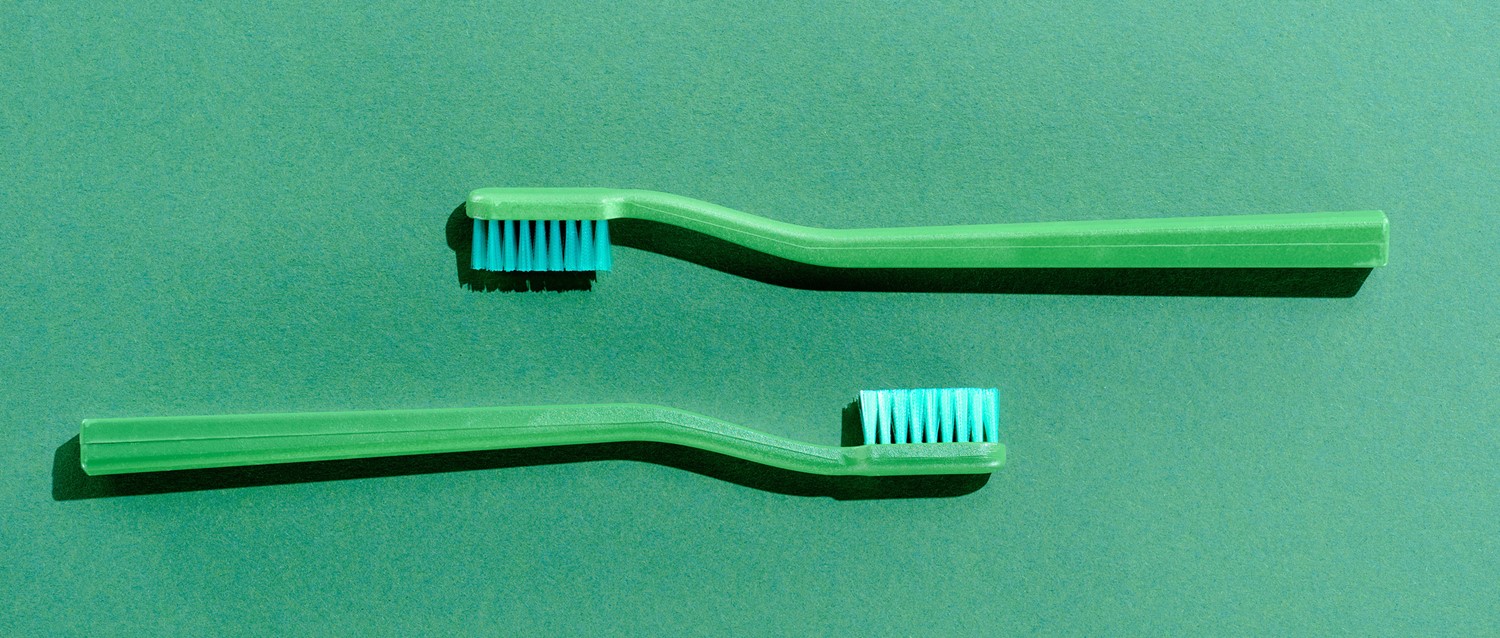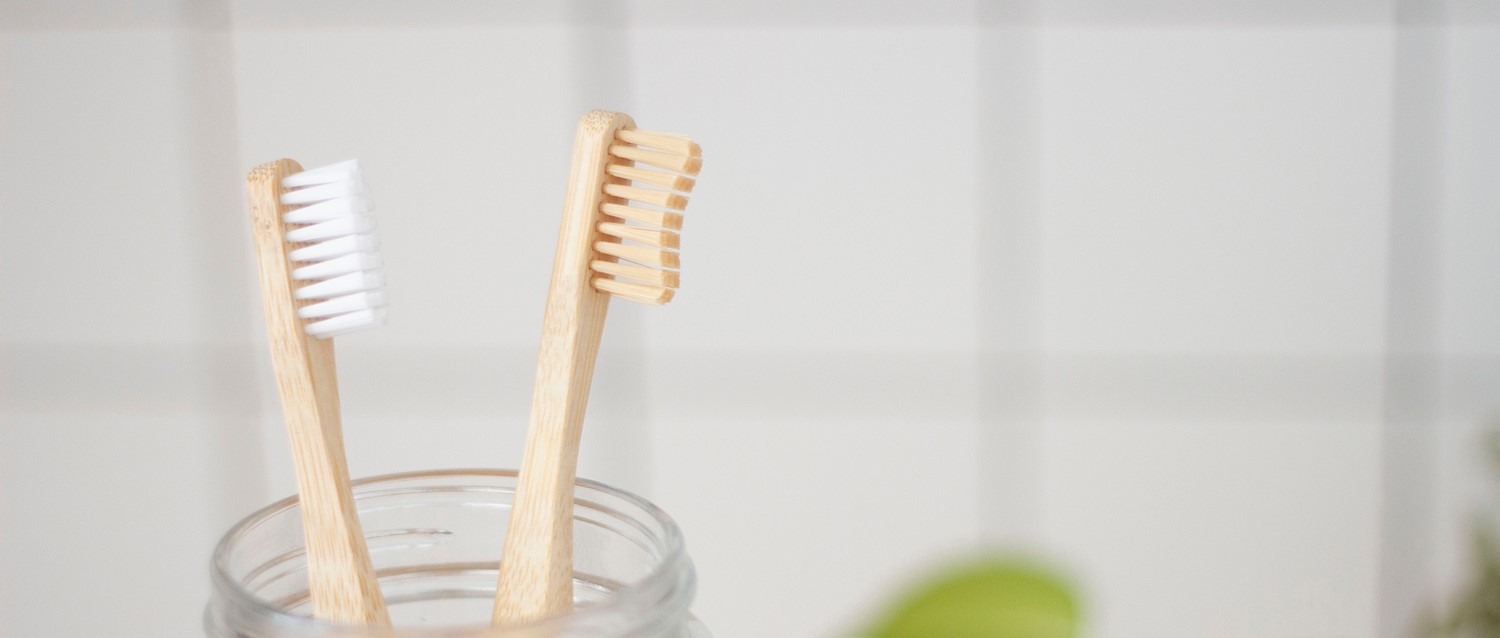
The reasons behind your bad breath
Peer reviewed by Dr Sarah Jarvis MBE, FRCGPAuthored by Gillian HarveyOriginally published 25 Feb 2018
Meets Patient’s editorial guidelines
- DownloadDownload
- Share
- Language
- Discussion
Whether it's one too many coffees, a spicy sandwich at lunchtime or a little dehydration, we've all experienced a bit of bad breath from time to time. In most cases, a quick swill with mouthwash or a trip to the bathroom for a brush will sort the problem out.
But what if we find ourselves suffering from bad breath on a regular basis? We look at the conditions that can lead to a more chronic problem.
In this article:
Video picks for Other oral problems
You are what you eat
We all know the main foods that cause bad breath - and it's only too easy to tell if you've overdosed a little on the garlic. But bad diet and junk food can also cause problems.
"Bacteria love carbohydrate-rich foods, so switching to a diet containing fewer sugary or carbohydrate-rich foods can help - as the bacteria don't work with them as well," explains dentist Dr Mohsin Ghor.
In addition, if you're cutting back the calories to attain your ideal figure, it's important to be aware that you might experience this less attractive side-effect. This is due to the fact that when your body begins to break down fat for energy, it will produce ketones, which can lead to an unpleasant smell.
"This is something experienced by crash dieters, and also by people who are fasting," explains Ghor.
Finally, certain medications including some chemotherapy drugs, have been associated with bad breath. If you are affected, speak to your doctor.
Build-up of calculus
Back to contents"The leading cause of bad breath is build-up of plaque on the tooth's surface," explains Ghor. "This can start to accumulate in any neglected areas in the mouth, particularly around the back teeth if people aren't flossing or using interdental brushes. That will then harden into calculus and this can only be removed with a professional clean."
"This doesn’t necessarily give off a smell, but it makes cleaning even more difficult. It creates ledges and more places for bacteria to thrive. As the bacteria in these areas break down food and drink, the biproduct is often a bad smell."
If areas are neglected long-term, this can also lead to tooth decay.
Continue reading below
Dry mouth
Back to contentsDry Mouth is an unpleasant condition in which the mouth lacks sufficient saliva, which can cause bad breath and other uncomfortable symptoms.
"Saliva acts as a lubricant and a buffer, flushing bacteria, food and other debris out of the mouth; but people with dry mouth don't have that saliva flow," explains Ghor. "Again, this causes bacterial build-up in the mouth."
Dry mouth is a condition often suffered by the elderly, but can also be caused by mouth-breathing, certain medications or a blocked salivary gland.
In addition, "Any sort of nasal obstruction or congestion can lead to mouth-breathing," explains Clare Morrison, GP from MedExpress. "These can also encourage bacterial growth in the sinus which can exacerbate the symptoms of bad breath."
Dehydration too can lead to dry mouth. One of the many reasons - drinking too much alcohol (a diuretic) - can leave your mouth as well as your head suffering the next morning.
Poorly fitting dentures
Back to contentsIf you wear dentures, you may be happy with their fit; but any gaps between the dentures and the soft tissue of the mouth can trap food and cause bad breath.
"Some patients will say they are happy with the dentures they have had for 30 years, but they're not a good fit. It feels comfortable because they are used to it and they're sticking them in with denture glue and they are not fitting around the soft tissue," explains Ghor. "When you remove them, there will be food underneath."
"Even those with full dentures should continue to have dental check-ups."
Continue reading below
Acid reflux
Back to contentsIf you suffer from acid reflux, you'll be familiar with the uncomfortable and sometimes painful symptoms that accompany this condition. However, as well as digestive problems, this issue can also lead to problems with breath, as smells from the stomach can reach the mouth.
In addition, reflux can cause bacterial problems in the mouth. "Reflux can make the oral environment much more acidic and bacteria thrive in this environment - again leading to bad breath," explains Ghor.
If you suffer from reflux, visit your GP who can prescribe medication to counter the problem.
Tonsil stones
Back to contentsIf you're suffering from tonsillitis, you'll be only too aware of the problem, as the symptoms include a painful throat and high fever as well as bad breath.
However, tonsil stones (tonsilloliths) can also cause bad breath, but you may not be aware you have them.
"Tonsil stones are an accumulation of bacteria or debris in the tonsil that can cause a persistent smell," explains Morrison. "If you look into the throat you should be able to see them on the tonsils."
"Unfortunately, we can't do much about these; but do see your GP if you're worried or unsure about them."
Psychological problem
Back to contentsIf you are convinced you have bad breath, but your dentist and those around you are not able to pick up on the condition, it could be that you are suffering from halitophobia, "a condition where people are convinced they've got bad breath when they haven’t. It can be a real problem, as it can make people anxious about close relationships and avoid social gatherings,” explains Morrison.
If you are still worried about bad breath after having initial investigations, make sure you raise this with your GP.
How to prevent bad breath
Back to contentsWhilst most causes of persistent bad breath will require a trip to the dentist or hygienist, there are a number of ways to improve symptoms at home.
Managing dry mouth
"For dry mouth, we would always recommend chewing on chewing gum to increase saliva flow and freshen breath. Sugar-free sweets can also stimulate saliva flow. Sipping on water regularly can also be helpful.
"Whilst there is medication that can be prescribed, this will only be given in extreme cases," explains Ghor.
Regular brushing
As well as seeing your dentist every six months, and visiting the hygienist, to ensure proper oral hygiene it's important to “brush twice a day for the minimum of two minutes,” explains Dr Monika Laczna, the CEO and clinical director of the Blue Light Dental & Aesthetic Clinic in London. "You really can’t brush too much unless you brush too hard - so the more the better!"
Thorough cleaning
"Flossing is also essential, although not everyone gets on with it. If you dislike flossing, trying an electric flosser, which uses air to clear debris from between the teeth, could be the answer," suggests Laczna.
"Patients should also clean their tongue. You can buy products such as tongue-scrapers for this, and it can help to keep your mouth fresh," adds Ghor.
A manageable condition
Back to contentsAlthough other conditions, such as lung infection, kidney problems or liver problems, may be associated with bad breath, if the unpleasant smell is your primary concern, it's unlikely that you are suffering from anything serious.
"Bad breath isn't going to be something that's going to pick up on another huge medical problem," agrees Ghor. "It tends to, the majority of the time, be as simple as bad oral hygiene and is very, very manageable."
Patient picks for Other oral problems

Oral and dental care
Should you clean your tongue every day?
We all know the importance of maintaining a daily oral hygiene routine. At the very least, you'll use toothpaste every day and possibly mouthwash. Although many people won't keep up with flossing, despite dentist recommendation, even fewer people think about scraping their tongue. Could you be missing an important step in your dental care?
by Georgia Gallant

Oral and dental care
How long will a mouth ulcer take to heal?
There's nothing more annoying than biting into a well-earned snack but having your enjoyment marred by the sting of a mouth ulcer. These tiny sores can be irritating and painful, and seem to take an age to clear up. But what causes mouth ulcers, how can we prevent them, and when should we worry?
by Gillian Harvey
Continue reading below
Article history
The information on this page is peer reviewed by qualified clinicians.
25 Feb 2018 | Originally published
Authored by:
Gillian HarveyPeer reviewed by
Dr Sarah Jarvis MBE, FRCGP

Ask, share, connect.
Browse discussions, ask questions, and share experiences across hundreds of health topics.

Feeling unwell?
Assess your symptoms online for free
Sign up to the Patient newsletter
Your weekly dose of clear, trustworthy health advice - written to help you feel informed, confident and in control.
By subscribing you accept our Privacy Policy. You can unsubscribe at any time. We never sell your data.